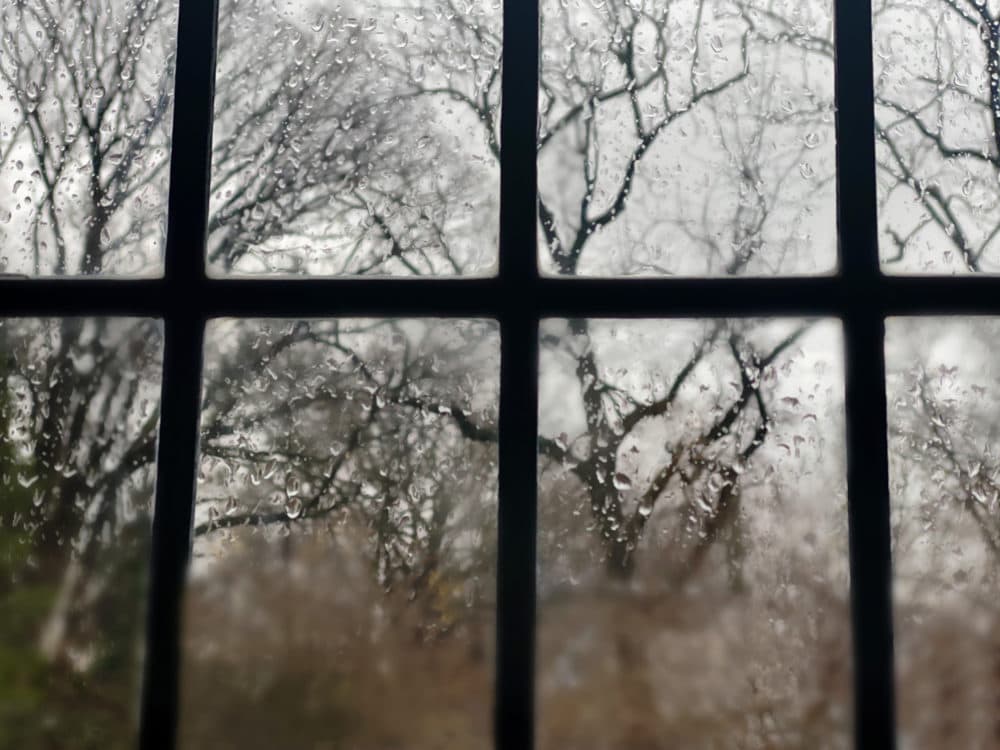Advertisement
Commentary
Searching for light in this season of ‘meh’

According to the calendar, winter doesn’t begin until the solstice, December 21, but everyone knows it’s been underway since November, when the hours of darkness began to edge out the hours of light. ‘Tis the season of sad, sadder, saddest — no clinical diagnosis of Seasonal Affect Disorder necessary. Of course, it’s worse this year because of the death and disorder wrought by the COVID-19 pandemic, now approaching its second treacherous anniversary.
“Now is the winter of our discontent” is getting a lot of hits on Google these days. The line comes from Shakespeare’s Richard III, in which Richard kills his way to the throne by ordering the murder of a brother, two young nephews, his wife, and you need a scorecard for all the erstwhile allies who get beheaded. But unlike Richard’s toxic discontent, which comes to an end after three hours (give or take), ours is rampant and there is no end in sight.
Merriam-Webster defines discontent as “a sense of grievance or dissatisfaction,” which certainly describes the mobs carrying torches and rifles in protest of vaccine and mask mandates, even as infection rates rise. Grievance sends zealots into the streets, threatening the lives of governors, school committee members, and nurses. (Nurses!?)
‘Tis the season of sad, sadder, saddest ...
Discontent can take less violent forms: ennui, lassitude, listlessness, numbness. It can manifest as confusion, difficulty focusing, emotional exhaustion, and depression. Almost everyone I know reports some version of this overwhelming meh.
Me, too. After two years of regular weekly online pandemic yoga practice, I haven’t logged on in a month. I start books and don’t finish them. And here’s the canary in my emotional coal mine: I haven’t baked cookies for weeks.
I've told myself to snap out of it. Relatively speaking, I have nothing to complain about. I’m secure in my home, vaccinated to the max, and until recently, I was able to pull up my socks. I’d take myself out for a brisk walk, read the poetry of Mary Oliver — the psalmist of the 20th century who instructs us to live in this glorious moment on this glorious earth because what else do we really have? I posted pictures of my dog, called friends I’d lost touch with, signed petitions, sent postcards encouraging folks to vote, sent more money to Amnesty International.
But lately, I’ve been becalmed, fuzzy-brained, and increasingly timid. I try to avoid news broadcasts, talk radio, and rarely read past the mostly fearful headlines. Even so, I can’t keep the events of the day from bleeding into my consciousness. And my inner drill sergeant is missing in action.
That low, ominous humming noise that’s been the soundtrack of the past two or so years has morphed into a dissonant chord that is impossible to ignore. The root note is the pandemic, which continues to fester, kill, break hearts, and undermine the thinning veneer of civil society. The middle note is the climate apocalypse, given voice by outraged children who know that their future is on fire. The top note sounds like a fire alarm, alerting us to the growing threats posed by authoritarianism, fascism, and racism — abroad and in the U.S.
Time may be an ever-flowing river, but human beings need endings and beginnings to make sense of our lives.
My discontent had sunk to the level of “disheartened” and was in danger of dropping into “despair.” Thankfully — miraculously? — my low point coincided with the beginning of Hanukkah, a holiday synonymous with sour cream, applesauce, potatoes, chocolate, gifts, and, on the darkest night of the darkest month of the lunar calendar, candles. It turns out that lighting one candle is much better than cursing the darkness. One measly candle cannot push back the lowering winter night, and Jews are enjoined to light 45 of them — adding one on each of the eight nights — a ritual reminder that the sun is coming back. (For those of you who are counting, it adds up to 45 with the “assistant” candle, which appears nightly.)
This is the season when people of all cultures and faiths push back against the long night by stringing bulbs, and lighting bonfires as well as candles. Also singing, which requires at least a temporary cessation of moaning and groaning. We feast and store energy to get us through the cold months ahead, we exchange greetings and gifts to remind each other that we are not alone.
Time may be an ever-flowing river, but human beings need endings and beginnings to make sense of our lives. We make rituals and holidays so we can turn a page, resolve to do better — to be better — and in the coming year, to answer the alarms that summon us to action with renewed energy and courage.
